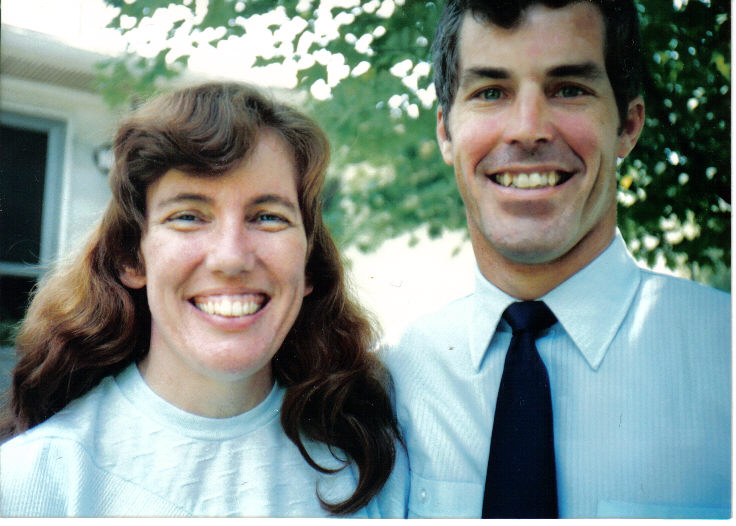On March 22, 1996, Mom stepped into the arms of her precious Savior, enjoying His loving embrace. I had seen her the previous night but it was unlike any time before. Instead of feeling her warm and loving embrace, seeing that precious smile and hearing her gentle voice speaking words of love and grace, she lay there almost lifeless—a shell of her former self. She had finished her mission and she was getting ready to stand before her Master. She had one leg of the journey left to take. What was awaiting her was a glorious sight and the gracious sound of her Savior saying, “Well done, thou good and faithful servant: thou hast been faithful. Enter into the joy of thy Lord.” She had “fought the good fight,” she had “finished [her] course,” she had “kept the faith” (2 Timothy 4:7).
This answer comes from the parable of the talents in Matthew 25. The message gives us a great challenge to consider as we consider ourselves. As I meditate upon these words in light of the memorial of my mother’s passing I ask the question, “What does ‘well done’ mean?” As the master commended his servant with these words, he described his servant by saying that he was “good and faithful.” In this passage, the word “good” speaks of being beneficial, profitable and useful. The word “faithful” speaks of being trustworthy. The master commends his servant for being “good” because of his usefulness, being profitable to the cause of his master. He also was commended for being “faithful” as he showed himself to be trustworthy in obedience to his master’s commands. Following this phrase, “good and faithful,” the master says, “Thou hast been faithful over a few things.” The “few things” are the “five talents” that he had been given the responsibility of. This servant had proved that he was faithful and could be trusted to execute the commands his master had given him. He simply did was his master would have done if he had done it himself.
The next question that comes to my mind is, “Am I being a ‘good and faithful servant’?”

Thinking back on mom’s life I see a “good and faithful servant.” She was a “good and faithful” wife who sacrificially loved my dad. They were a great team, working together to be “good and faithful” in their God-given responsibilities. Mom was a “good and faithful” mother, raising us children with sacrificial love often putting our needs in front of her own. We knew that we were loved.

Alongside my father, she was also a “good and faithful” missionary, advancing the cause of her Master, Jesus Christ, as they took the Gospel to the Banwaon (ban-wa-own) people located in the mountains of Mindanao, Philippines. These people had never heard of Jesus Christ until dad and mom stepped out in obedience to God’s call for them to go and take His most precious Word—the message of the hope of eternal life—to a group of people living in fearful bondage. They practiced animism, worshipping the evil spirits and sacrificing animals to them. Now, these same people are free, living with great joy instead of great fear. They also, enjoy a relationship with Jesus as they seek to live as “good and faithful” servants advancing the cause of their new Master Jesus.
Mom was also “good and faithful” as she taught these people how to read and write in their own language, which up to that point had been an unwritten language. Today, they can read the very Word of God and soon will have their own copy of the New Testament in their own language thanks to the tireless efforts of Albert and Lynne, other “good and faithful” servants of the Lord and others before them.

As I look back on Mom’s life, I am grateful to God! He gave me the privilege of being raised and cared for by my parents—these “good and faithful” servants of God. I realize that, with these words, Mom sounds like a saint who never did anything wrong. The truth is, she was a just like us flawed souls making mistakes and needing to trust God at every turn. During her last couple of years of her life, she would lay in bed weakened by cancer and I would quietly go into her room and kneel down beside her bed. In these moments she would often say, “I’m just a dumb sheep.” This wasn’t a statement of discouragement but the reality of someone who knew that there were more areas of their life that needed to be addressed. She knew that she had flaws. She knew that she had so much to learn. But she also knew her Shepherd. She knew that He loved and cared for her. She knew the reality of His love as her Good Shepherd carried her “through the valley of the shadow of death” (Psalm 23:4), knowing there was something beyond the suffering she was enduring as He was carrying her “through” this valley. Because of this truth, she was able to rest in Him—she “feared no evil”—because she knew her Shepherd was ever-present carrying her “through,” providentially orchestrating the details of her trial, her pain, her suffering. She knew “Who” her Shepherd was! She knew that He gave His life for her in the greatest demonstration of love as He paid the penalty for her sins (Romans 5:8). He was not only her Shepherd but also her Savior.
Some time ago I heard a poem by Linda Ellis called “The Dash,” which speaks of the little line between the dates of our birth and death. This little “dash” represents our life and how we are living it. She writes, “For it matters not, how much we own, the cars…the house…the cash. What matters is how we live and love and how we spend our dash.”
During the 19 years that I had the privilege of knowing Mom, I can honestly say that she spent her “dash” well. She was a “good and faithful servant” who sought no glory for herself but glory for her Savior—her Master Jesus Christ. The “proof is in the pudding” as they say. Her fingerprints of memories, of how she touched the lives of others, remind us of how she “lived and loved and how she spent her dash.” We give testimony of her tenderness, her grace, and love and most importantly how much she loved her Savior and wanted others to know His love as well.
Mom was “good and faithful” because she was useful to her Master. She was trustworthy with the responsibilities that He had given her. She was profitable to the cause of Christ.
God has called His followers to be “salt” and “light” in the world (Matthew 5:13-14). The Bible tells us that He “works in you both to will and to do of His good pleasure” (Philippians 2:13). His “good pleasure” for each of us is to be good image-bearers reflecting His light to the world in which we live.
“Let your light so shine before men, that they may see your good works, and glorify your Father which is in heaven.”—Matthew 5:16
God desires to use those who are receptive to His working in them to influence others to respond in kind. God has placed within each of our lives those whose fingerprints remind and encourage us to look outside ourselves seeking to show kindness, blessing others.
“And be ye kind one to another, tenderhearted [compassionate], forgiving one another, even as God for Christ’s sake hath forgiven you.”—Ephesians 4:32
With this thought in mind, my reflections turn inward asking, “Father, can I look forward to hearing, ‘Well done: thou good and faithful servant: thou hast been faithful’? Am I living a life that points people to Christ and His love? Do others see me living and loving and spending my dash to Your glory? Am I being “good and faithful” in my service to You?”
How about you? How are you spending your dash? Are you seeking to live a life of God-honoring praise? When you stand before your Maker, will you hear the words, “Well done: thou good and faithful servant: thou hast been faithful. Enter thou into the joy of thy Lord?”










